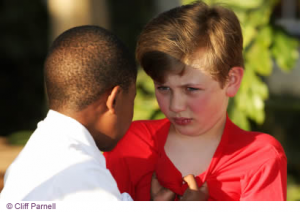Bullying
 Its that time of year again, kids are getting ready to go back to school.And as in previous years our psychology practice is preparing for the influx of kids and anxious parents who are dealing with bullying.
Its that time of year again, kids are getting ready to go back to school.And as in previous years our psychology practice is preparing for the influx of kids and anxious parents who are dealing with bullying.
Last week in Slate Alan E. Kasedin and Carlo Rotella tackled this very problem. Bullies:They can be stopped but it takes a village”
Bullying is linked to everything from school shootings to youth suicide to adult depression and violent crime. School Bullying is nothing new, but psychologists are identifying new ways to prevent it. Dan Olweus, PhD. of Norway is recognised as a pioneer and “founding father of research” on bullying and victimization. His research inspired Bullying at School: What We Know and What We Can Do (Understanding Children’s Worlds) Olweus found that 15 percent of Norwegian kids say they’ve been involved in bullying “now and then,” a statistic that slides upward in the United States to as high as 25 percent of students reporting they’ve been victims and 20 percent confessing to being bullies.
Olweus developed a program carefully evaluated in research,that involved parents, teachers, and peers throughout Norway which significantly reduced bullying.It has been viewed as a model and adopted in other countries—including the United States, where many schools employ variants of it………link to read original article
Source: Slate
There are many resources to help in identifying and intervening effectively to stop bulling and its consequences. Here are some:
Public Safety Canada on bullying
Centre for Children and Families in the Justice System
KidsHealth on bullying
Bullying.org
The “Code of Silence”
Psychology Matters on bullying
Â


Image: University of Alabama
New research shines a light on the phenomenon of “cyber bullying,” suggesting that nearly 1 in 10 children are bullied through electronic means such as text messages, and girls are more likely to be victims than boys are.
Other kinds of bullying remain much more common, however. Large numbers of kids continue to harass each other by spreading rumors, turning fellow students into outcasts and intimidating others through words and violence.
There is a bright spot: The findings suggest that parents have the power to prevent kids from bullying or being bullied. [continue reading…]

Image credit: iStockphoto
Researchers at the University of Warwick found children who suffered physical or emotional bullying were twice as likely to develop psychotic symptoms by early adolescence, compared to children who are not bullied. However, if they experienced sustained bullying over a number of years that risk increases up to four times. [continue reading…]
